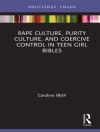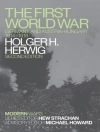This book considers if and how oral history is ‘best practice’ for education. International scholars, practitioners, and teachers consider conceptual approaches, methodological limitations, and pedagogical possibilities of oral history education. These experts ask if and how oral history enables students to democratize history; provides students with a lens for understanding nation-states’ development; and supports historical thinking skills in the classrooms. This book provides the first comprehensive assessment of oral history education – inclusive of oral tradition, digital storytelling, family histories, and testimony – within the context of 21st century schooling. By addressing the significance of oral history for education, this book seeks to expand education’s capacity for teaching and learning about the past.
Spis treści
1. Introduction.- I. Conceptual and Theoretical Approaches.- 2. Oral History as Peace Pedagogy.- 3. Pedagogical Approaches to Oral History in Schools.- 4. Historical Thinking, Oral History, and Reconciliation Education.- 5. When Oral History Calls on You: Stories from Nunavut.- 6. Feminist Pedagogies and Histories of Choice: Using Student-Led Oral Histories to Engage Reproductive Rights.- 7. STEM Histories: Complicating Dominant (Object-Oriented) Narratives.- II. Methodological and Pedagogical Dilemmas.- 8. “We tell stories ourselves in order to live”: The Pedagogical Limits of Testimony as Oral History.- 9. Where Macro and Micro Histories Meet: Position, Trumps, and Pitfalls of Family History as a Form of Oral History in Flemish Education.- 10. Ethical Complexities for History Teachers: Accredited Oral History Training in Australia.- 11. Re-Visioning Self-Determination: Planning for Culturally Sustaining/Revitalizing Oral Histories with Indigenous Communities.- 12. Remembrance as a Digitally Mediated Practice of Pedagogy.- III. Programs and Practices.- 13. Inspiring Pedagogy: Talking to Educators about Oral History in the Classroom.- 14. Collecting Family Oral Histories in an Elementary Classroom: Shaping Stories as they Shape Us.- 15. Developing Student Teachers’ Historical Thinking: Oral History in Teacher Education.- 16. Oral History Pedagogy in Situations of Conflict: Experiences from Colombia, 1996-2014.- 17. Learning with and from Rwandan Survivor-Historians: Testimonial Oral History as Relationship Building in School.- 18. Learning with Digital Testimonies in Germany: Educational Material on Nazi Forced Labor and the Holocaust
O autorze
Kristina R. Llewellyn is Associate Professor of Social Development Studies at Renison University College, University of Waterloo, Canada. She is the co-editor of The Canadian Oral History Reader (2015) and the author of Democracy’s Angels: The Work of Women Teachers (2012).
Nicholas Ng-A-Fook is a Professor of Curriculum Theory and the Director of the Teacher Education program at the University of Ottawa, Canada. He is the co-editor of Reconsidering Canadian Curriculum Studies. He is the founder of A Canadian Curriculum Theory Project.












